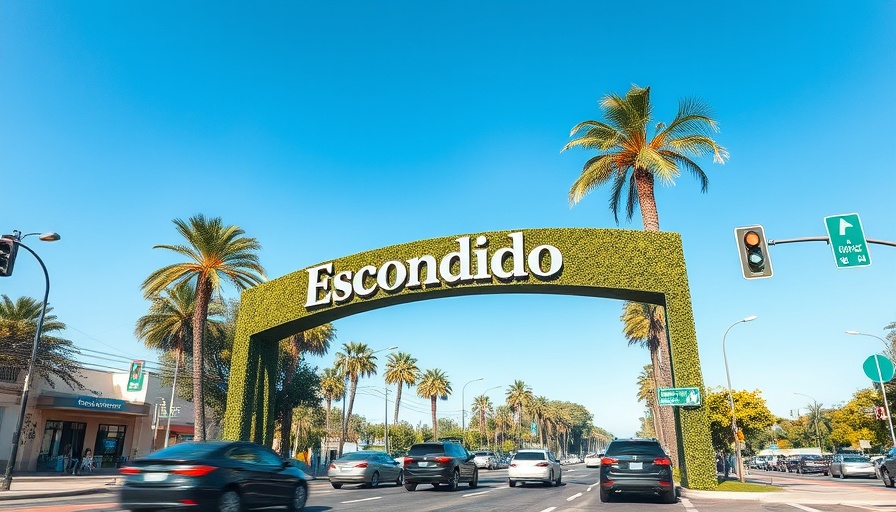
Escondido's Sales Tax Initiatives: A Breath of Fresh Revenue?
In recent months, cities across the San Diego region have grappled with financial challenges as budgetary restrictions tighten. Among them, the city of Escondido has emerged as a focal point of discussion following the implementation of a new sales tax that raised the local rate from 7.75% to 8.7%. With projected revenue skyrocketing from an anticipated $28 million annually to around $38 million, the local government had high hopes for revitalizing city services and infrastructure, which have suffered from years of deferred maintenance.
The Financial Reality: Sales Tax or Still in the Red?
While the increase in sales tax may sound promising, the reality is less optimistic. Despite the additional funds, city staff forecasts indicate that Escondido will still face a budget deficit. This raises serious questions about whether this new influx of revenue is enough to adequately address the city's mounting financial obligations. The public was initially sold on the idea of improved city services and infrastructure, but skepticism arises as reality sets in that even an expansion of revenue sources may not suffice to erase the deficit.
The Broader Impact: Lessons for San Diego Residents
For residents in San Diego, these developments underscore the importance of understanding local taxation and budgeting processes. As Escondido’s experience teaches, increased taxes do not automatically translate into improved services. Residents should advocate for transparency and accountability on how tax revenues are spent. The city’s ongoing budget challenges serve as a reminder that proactive measures, alongside responsible governance, are crucial for sustainable community development.
Why Escondido's Challenges Matter to You
The budget issues faced by Escondido are just a microcosm of broader concerns affecting every city in the region. As San Diego seeks to address its own $350 million deficit, the questions posed by residents will shape future decisions. It is essential for the community to remain engaged, understand the intricacies of local government, and push for solutions that truly resolve financial disputes rather than offering temporary relief.
Looking Ahead: What Can Be Done?
While the new sales tax plays a part in filling budget gaps, Escondido’s situation calls for innovative approaches. City officials could explore partnerships with local businesses to foster economic growth while ensuring that tax revenues are reinvested into projects that directly benefit residents.
This could mean implementing better tracking systems to allocate tax dollars effectively and keep spending aligned with residents’ needs. Suggestions such as community forums can help restore confidence in local governance and encourage civic participation.
Taking Action: How You Can Get Involved
With the community facing financial uncertainty, now is an opportune time for residents to become more engaged in local discussions about budget priorities. Whether it’s attending city council meetings, voicing concerns, or proposing innovative ideas, each resident plays a vital role in shaping the future of Escondido and surrounding areas.
Having an understanding of local financial matters empowers residents to hold leaders accountable, ensuring that financial decisions align with community needs. Send your questions or concerns to the local government; your voice is critical in initiating change.
Final Thoughts: Staying Informed is Key
As the debate around Escondido's new sales tax continues, it is crucial for residents to stay informed and actively participate in local governance. Knowing the financial landscape will foster a stronger, better equipped community capable of facing the challenges ahead. In this era of tight budgets and fiscal scrutiny, collective advocacy can turn potential doom into opportunities for growth and improvement.
 Add Row
Add Row  Add
Add 




Write A Comment